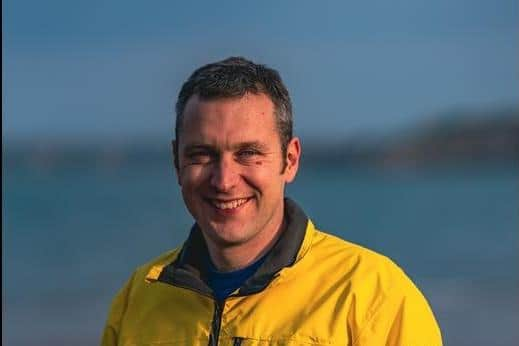Scarborough RNLI crew member travels over 600 miles to become SAR navigator
and live on Freeview channel 276
To complete the course, Aaron Yeoman had to travel 620 miles on a return journey.
The three-day course consisted of gaining practical experience and knowledge by going to sea on the RNLI training boat (a 42ft Hardy cruiser), using the Lifeboat Simulator and also in a classroom environment.
Advertisement
Hide AdAdvertisement
Hide AdIt’s an opportunity for volunteer ALB crew to learn new skills, building upon those already acquired as an ALB navigator, such as wheelhouse command experience and efficient communications.


The first day was a combination of classroom theory and practical sea-based training, focused on search patterns that can be used to locate anyone who needs help in the water.
Day two consisted of training in the Lifeboat Simulator, which is based on the Severn Class (the largest vessel in the RNLI fleet). Building on the previous day’s search pattern exercise, students practised chart work and calculating the position of a casualty after drifting from their last known position.
Aaron commented: ‘Wind and tide have a big impact on a casualty's new location, as a SAR Navigator this is a skill that needs to be practised over and over again.’
Advertisement
Hide AdAdvertisement
Hide AdThe final day returned to training afloat, conducting advanced and uncommon search patterns. For example, a Multi Vessel Search, this requires great precision and communication by SAR Navigators as numerous other boats as well as the lifeboat are used as part of a search effort.
The support vessels tend to take instructions from the RNLI SAR Navigator as they are often the incident on scene coordinator.
Students were tested in the afternoon with scenarios to consolidate their knowledge and experience. Just like in reality, students including Aaron, were not briefed about the type of incident scenario beforehand. This added to the intensity and realism of the exercises.
Aaron commented on his time at RNLI College, Poole, saying: ‘This course has certainly helped improve my knowledge and build upon the experiences I have already gained as an ALB Navigator and crew member for Scarborough RNLI.
Advertisement
Hide AdAdvertisement
Hide Ad'There were some interesting scenarios over the three days that tested my skill and ability as a SAR Navigator. The knowledge and information I gained on the course have allowed me to become a better crew member and SAR Navigator.
'I also hope that what I have learnt and experienced on the course I can pass on to my fellow volunteer crew back at Scarborough RNLI.’